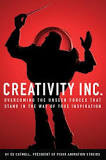Often the first step to learning, is to know what it is you don’t know. This oft recited phrase is an interesting starting point for someone in my role. As a Learning Technology Coach, I am keenly aware of the amount of learning that is beyond my current sphere of experience. And that amount is constantly growing.
And learning is a resource heavy undertaking. Learning new things takes a lot, particularly for time pressured teachers. Many teachers can be forgiven for deciding either purposefully, or by default, that the mass of technology led learning available is just too big to start delving into. Where to start?
This kind of choice paralysis is a direct result of the overwhelming myriad of options that using technology offers.
Here is where I come in. I can open a window into what you haven’t had time to know, so you can see what the possibilities are. You don’t have to know what you want to do with technology before you ask me. You just have to be willing to look at new opportunities.
Then, when you are keen to give something new a go, I can be there with you so I can learn how this works for your students. While they are learning what you need them to.
That’s how you help me to learn.



